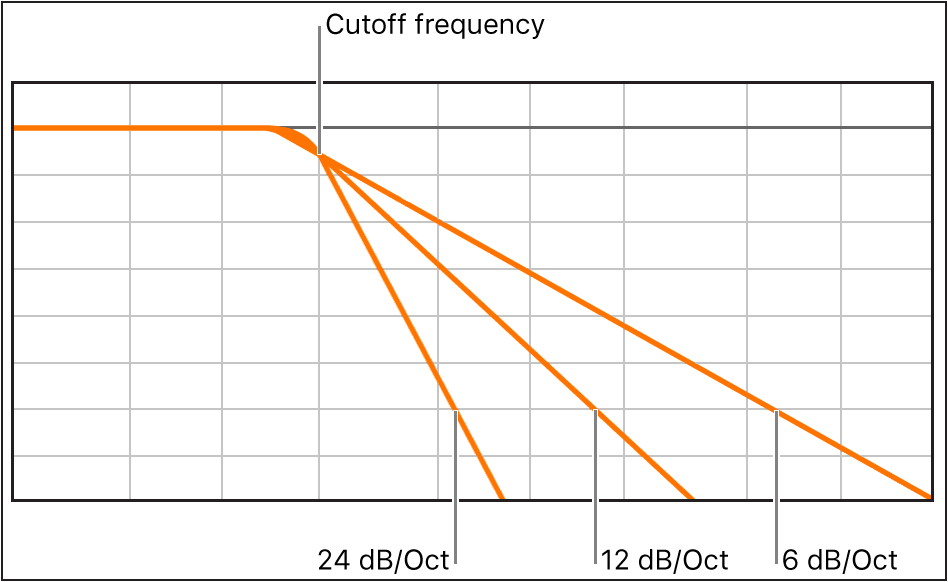"Uhm, single dynamic driver IEMs cannot possibly do what multiple drivers do it's not fiscally posible" yeah right.
Sort of.
In conditions similar to a vacuum chamber, sound transducers show a roll-off of -12dB per octave above their resonance frequency. Earphones, which operate under conditions similar to those in a vacuum chamber, if they have a single driver, it has a resonance frequency around 3000Hz. As a result, iems with one driver can struggle to extend high frequencies above this threshold. (usually they put a solo driver which is very capable of delivering information above 3000hz and use acoustic filters around mids to tame its energy down afaik. Sennheiser does that a lot. )
To put it simply, if you place a driver with a flat response inside an earphone, its response would show the 12dB/octave roll-off beyond the 3000Hz cutoff frequency. This is a simplification, of course, intended to illustrate a point. To illustrate this point, I attached this image below. Assume the cutoff frequency is 3000hz and that's how a flat response driver would roll off if placed inside an iem case in ideal conditions:
You can definitely tweak a single driver to get a pretty even response across the board, using acoustic filters for extended bass and treble, and keeping the mids smooth. But if you really want smoothness and clarity up top, namely above 10kHz, a HF dedicated driver is necessary. Take the Samsung Buds2 Pro as an example – even with all the fancy DSP tech they use, they still have 2 drivers, despite with DSP everything being possible.
An IEM with 2 drivers can measure great on test fixtures, you can see their target curve fit Harman curve nicely, however when you do not have perfect seal, using the same 2 iem driver example, the bass response should roll off dramatically below the drivers resonance frequency(3000hz~) and your iems which measured like they have a lot of bass will sound bass light. Achieving a perfect seal with IEMs is close to impossible. This phenomenon I explained this paragraph is called as leakage tolerance and 2 driver iems have usually bad leakage tolerance. Amir doesn't take leakage tolerance measurements but thereare few people who takes such measurements(Oratory and headphonetestlab)
To counteract this issue, manufacturers often add an additional subwoofer driver dedicated solely to bass frequencies which has good leakage tolerance. (better than a mid driver)
In short 3 drivers are ideal, 2 drivers are good enough. One driver + DSP or One driver + careful tuning can come close to perfection too but it can't really be top tier. I can't see the point of using more than 3 drivers. It reduces the R&D costs of making a very capable HF / bass driver probably.
tl;dr, iems operate in vacuum chamber conditions, that brings limitations in HF extension and bass leakage tolerance. That's one of the reasons why we see iems with a lot of drivers and headphones with just one driver. Headphones operate under vacuum chamber conditions up to 150hz~ whereas iems up to 3000hz~.

